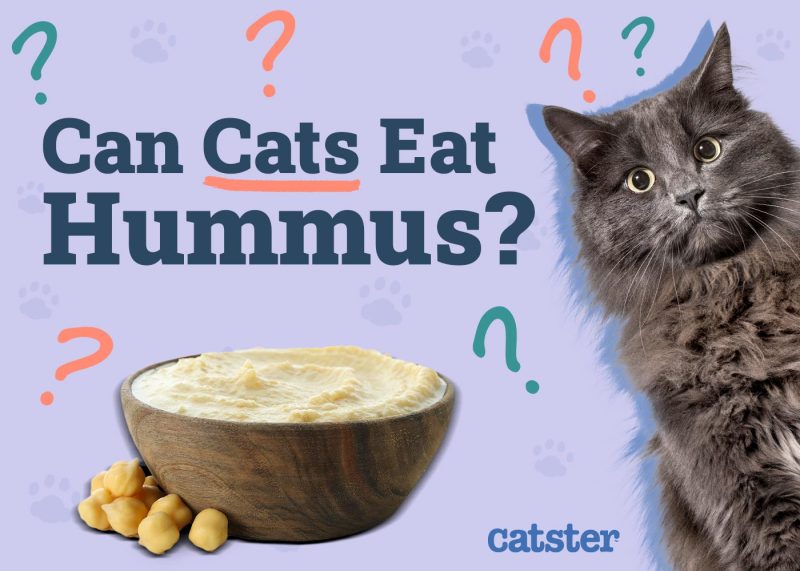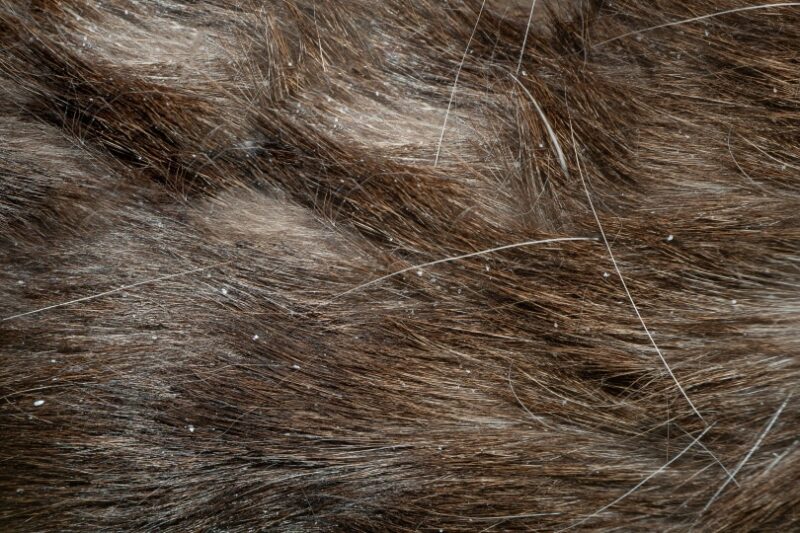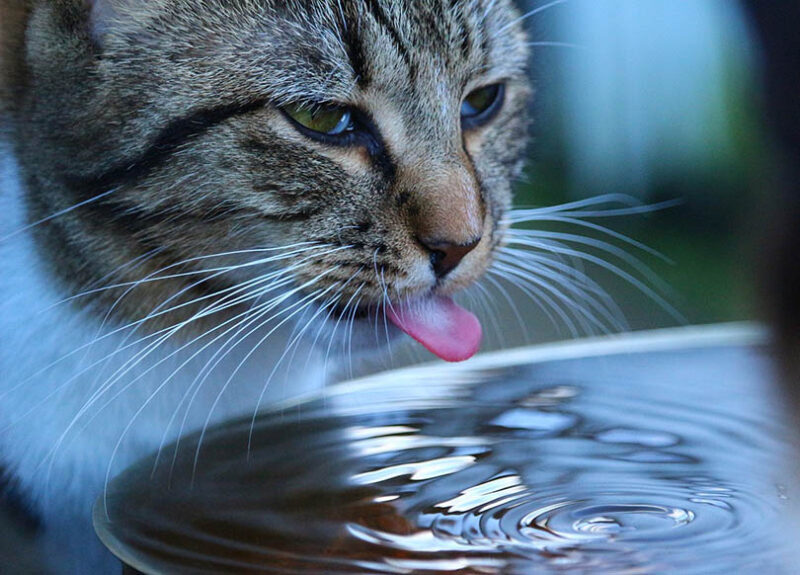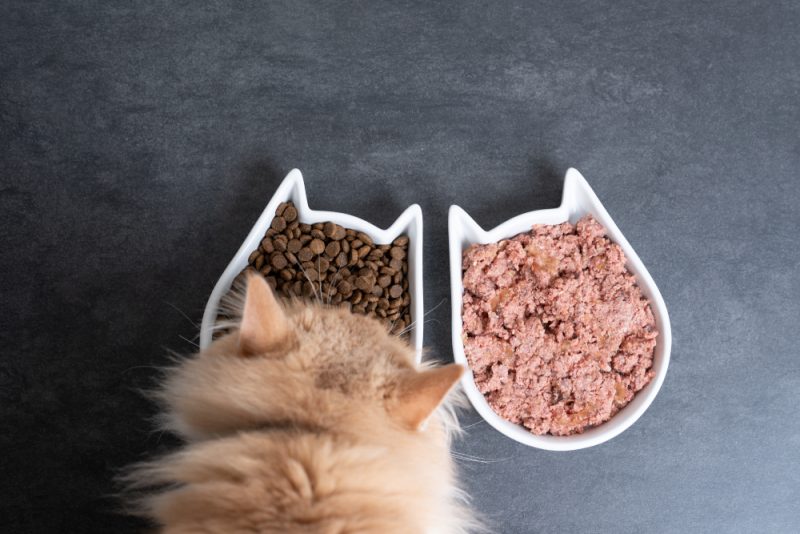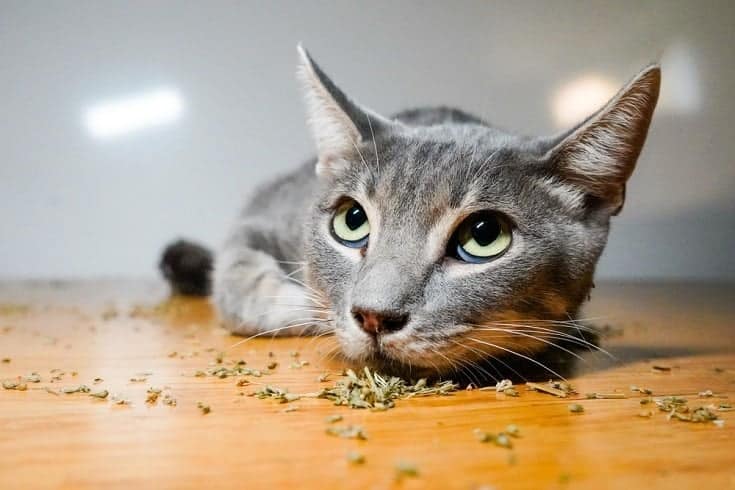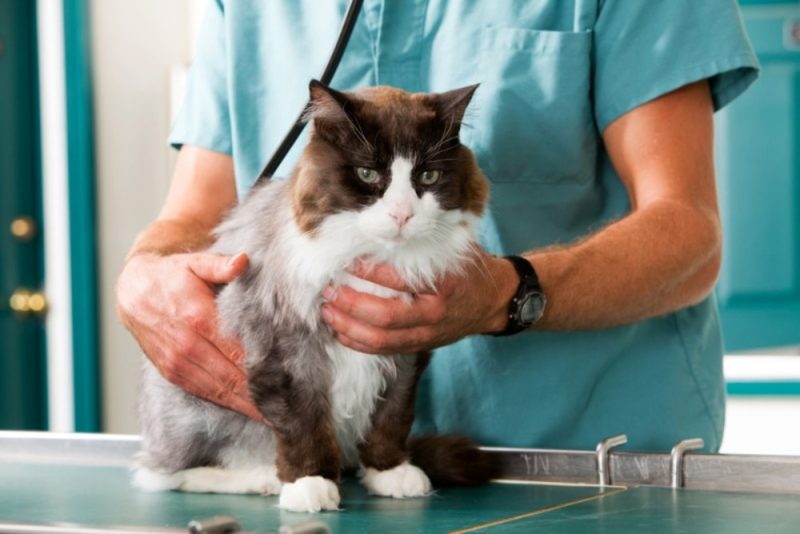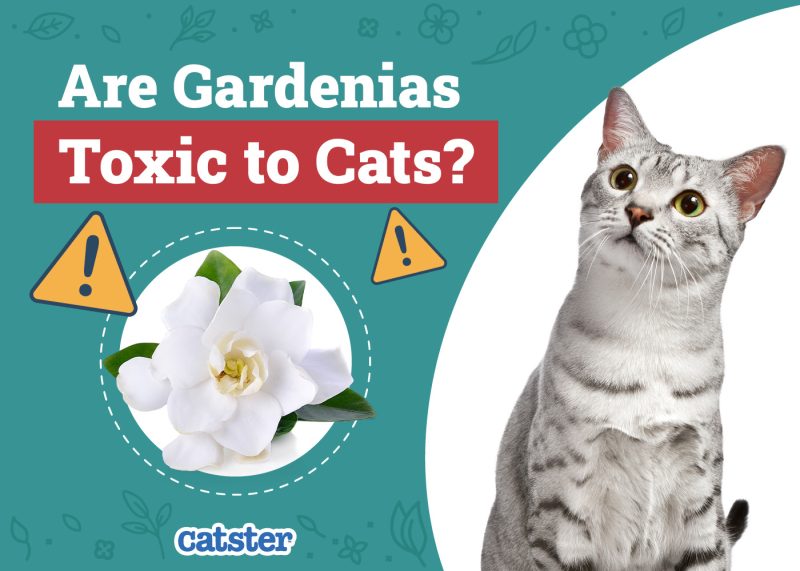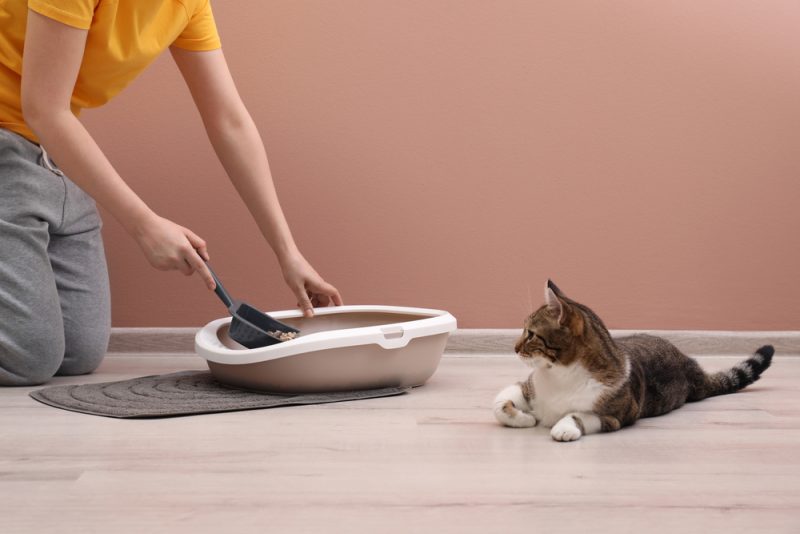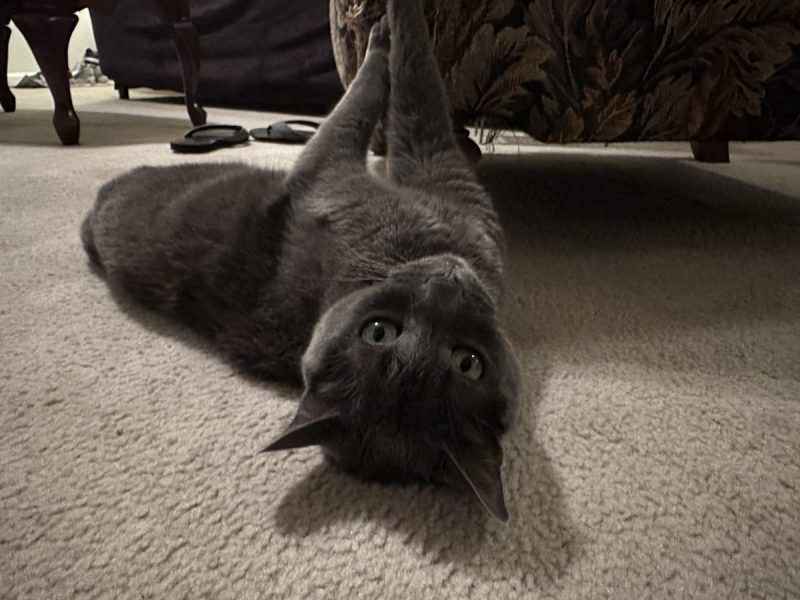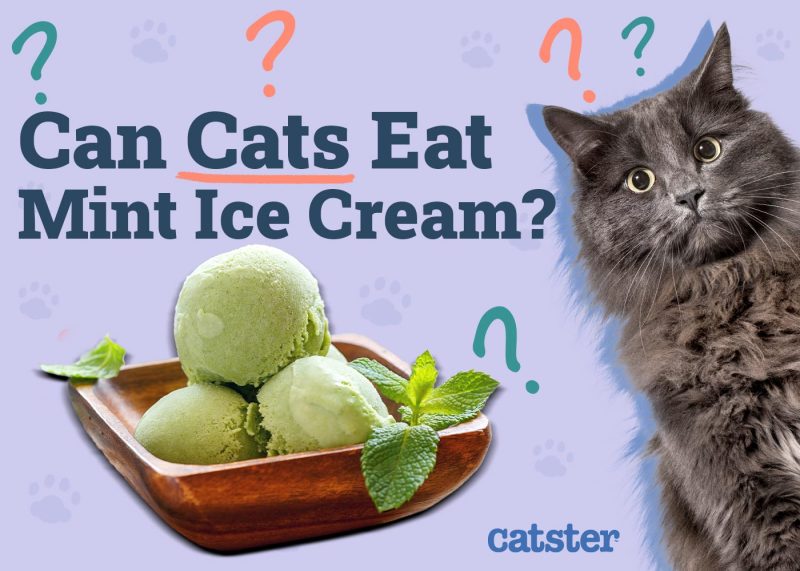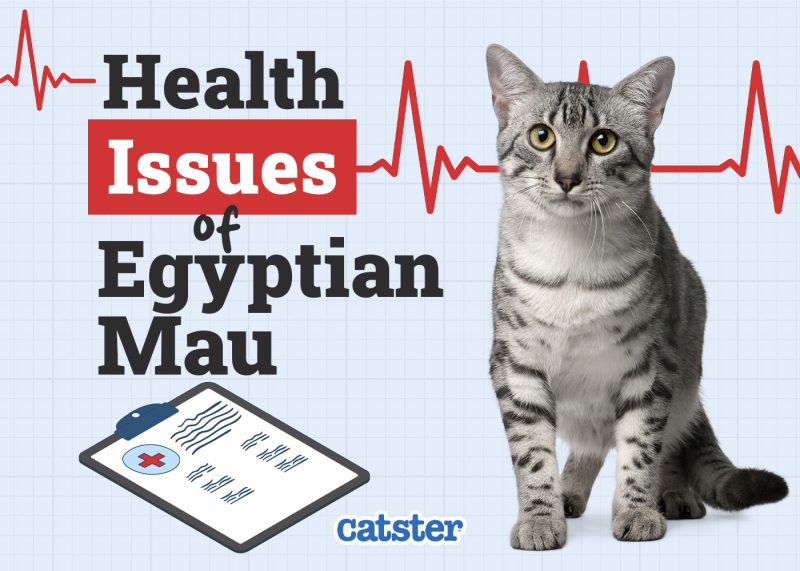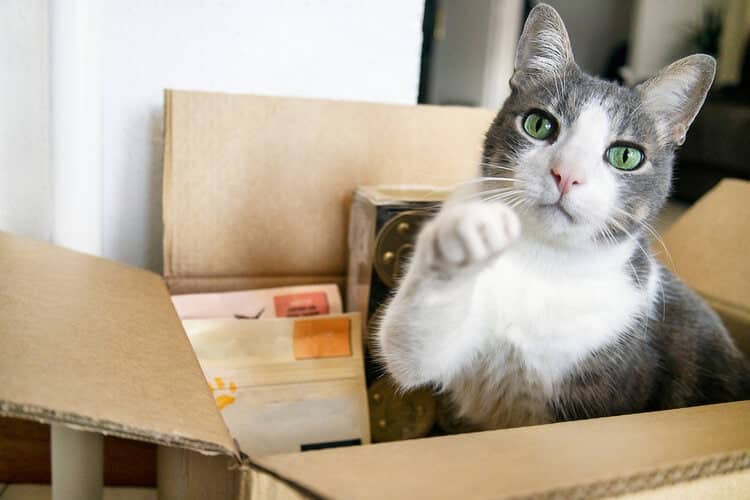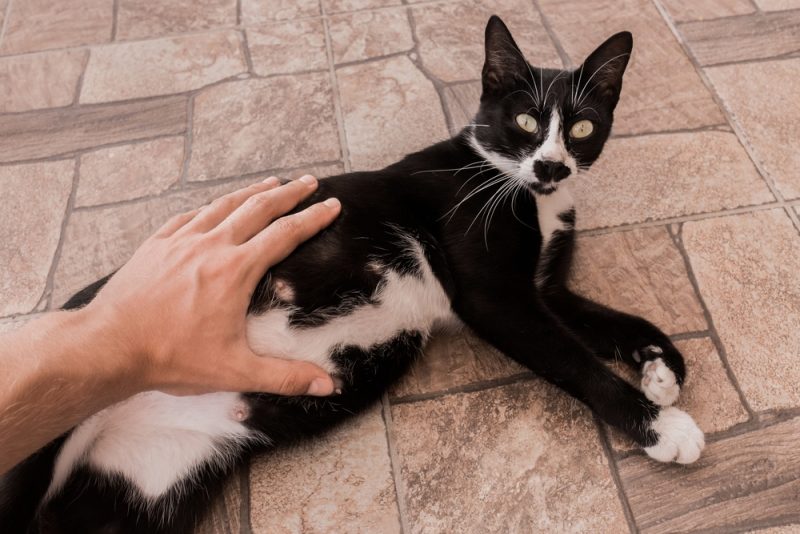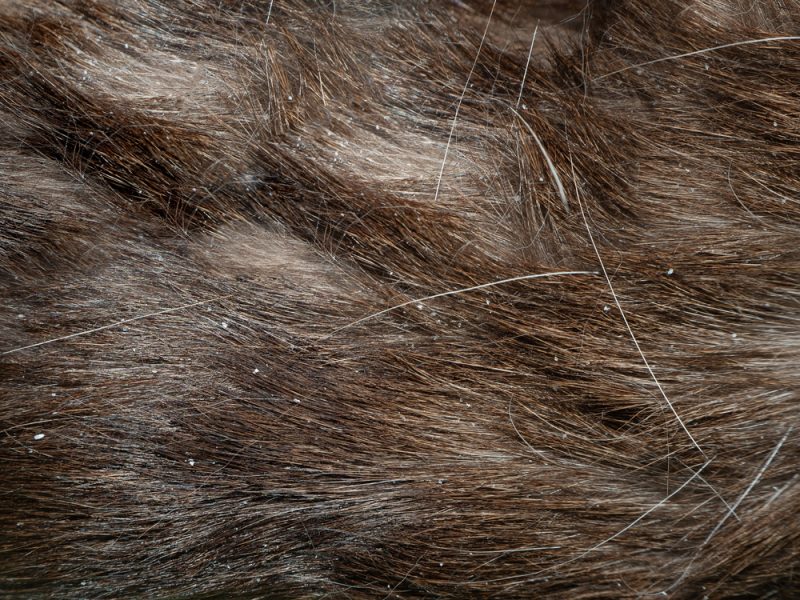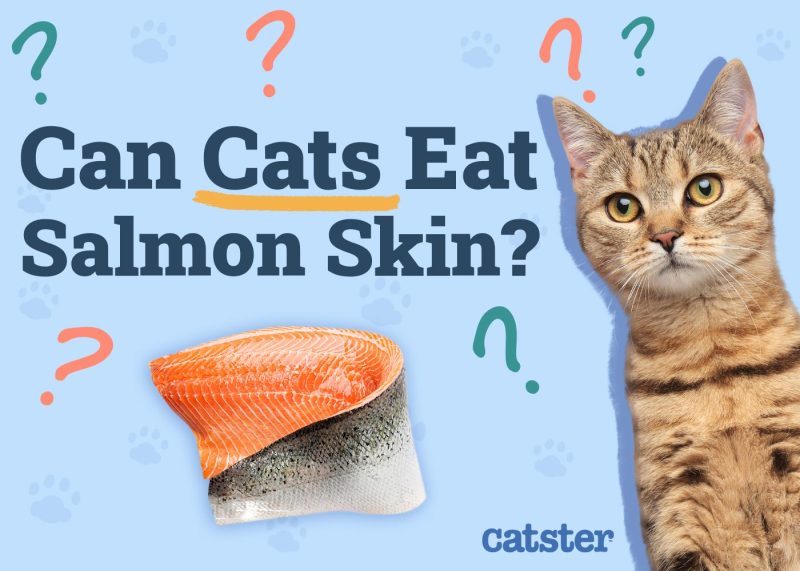Hummus is a popular Middle Eastern food enjoyed by many Americans. You can enjoy hummus as a dip, dish, or spread, and if you enjoy eating it in your home, you probably wonder if your cat would like it as well. The short answer is no. Cats should not eat hummus, so keep reading while we discuss the reasons why.
When considering adding any new ingredients to your cat’s list of snacks, please consult with a veterinarian first to make sure they are safe and appropriate for your cat, depending on their age, health, potential underlying medical issues, or ongoing medication.

Is Hummus Bad for My Cat?
Your cat is a carnivorous animal that requires a specific diet that is high in animal proteins, moderate in fat, and very low in carbohydrates. Let’s look at why hummus does not fit into their natural diet and why it might be a bad choice to feed your cat.
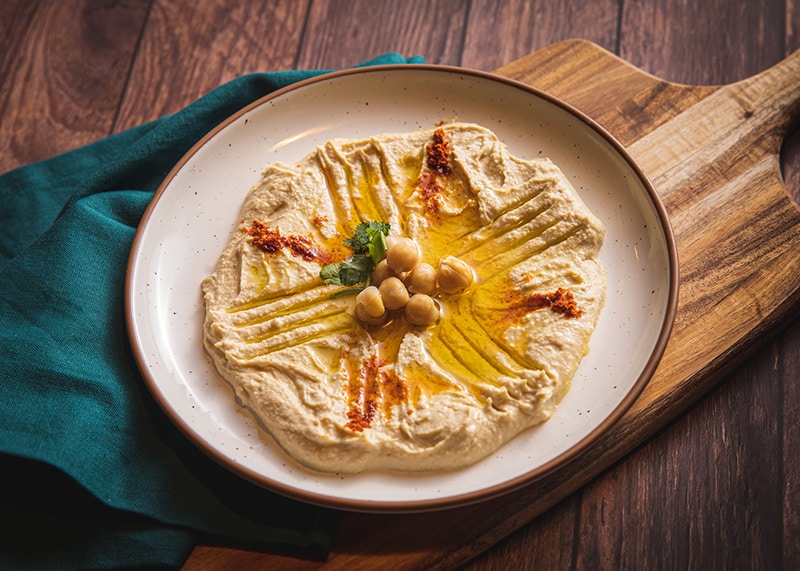
Chickpeas
The primary ingredient in hummus is chickpeas. Chickpeas provide some protein, but it lack many important amino acids that you can only find in animal proteins, like taurine, that are essential for cats and that they can only get from animal protein. A cat would develop nutritional deficiencies and serious health problems on a vegetarian or vegan diet, and this is dangerous and detrimental to their health and welfare.
Chickpeas also contain carbohydrates that your cat doesn’t need or digest in the same way that we do, and they thrive on a low-carb diet. Your cat’s digestive system cannot break down chickpeas properly, so they may get diarrhea or other digestive problems.
Although chickpeas are often recommended for weight loss in people and they have some claimed health benefits, these cannot be extrapolated to our feline companions, as their digestive system is nothing like ours, and they will not benefit from eating any amount of chickpeas. We have to respect their nutritional needs and make sure they have everything they need to thrive and be healthy.
Tahini
Tahini, which is ground sesame seeds, is another ingredient in hummus. These seeds are high in fat and oil, which can upset your cat’s digestive system, leading to diarrhea and vomiting.
Garlic
Many recipes also contain garlic, which is toxic to cats. It belongs to the Allium family along with onions, chives, and leeks. Eating garlic will lead to oxidative damage of the red blood cells and Heinz body anemia, which will require veterinary attention. Cats have smaller body weights and are more susceptible to garlic effects than dogs, which can also suffer toxic effects.
If you are worried your cat has eaten any hummus or another food containing garlic, onions, leeks, or chives, please contact a veterinarian immediately. Your cat may require treatment depending on the ingested amount, or the vet may advise monitoring your cat at home for the next few days.
If you need to speak with a vet but can't get to one, head over to PangoVet. It's an online service where you can talk to a vet online and get the advice you need for your pet — all at an affordable price!
Hot Sauce
Hot sauce is also often an ingredient in hummus that can be harmful to your cat. It can be highly irritating to their mouth if licked, causing drooling, retching, vomiting, redness inside the mouth, and pain. If ingested, it may lead to digestive issues, depending on the amount.
Sodium
Another ingredient in many hummus recipes is salt. While not necessarily as bad for your cat as other ingredients on this list, cats need salt as well but not at the amounts that are present in many human foods.
It’s unlikely that a lick of hummus will cause an excess of salt in your cat, as it would take a more significant amount to lead to salt poisoning, but alongside other harmful and toxic ingredients, such as garlic, it’s clear that hummus is not something cats should ever eat. Besides salt, there may be other additives and flavorings in hummus that your cat will certainly not benefit from.
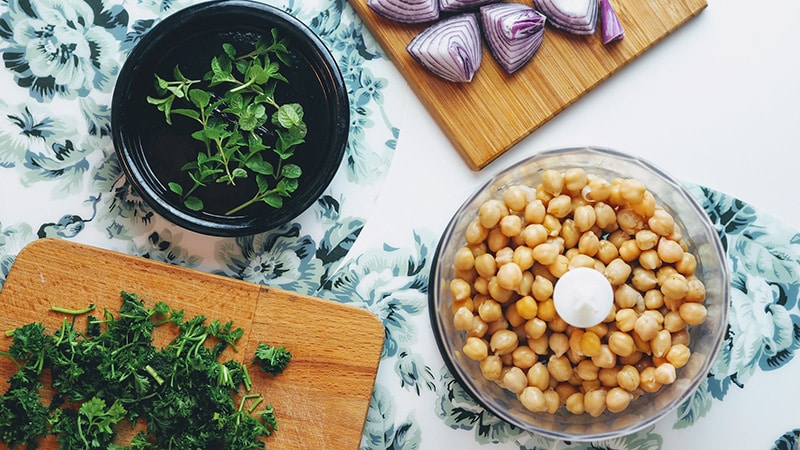

Is Any Kind of Hummus Good for My Cat?
You may be wondering: How about hummus that doesn’t contain any garlic or hot sauce, and is low in salt, fat, and carbs? Would this be more appropriate to offer to your kitty? Not really.
As explained above, hummus is just not the type of food that cats should eat. Their diet is based on animal protein, and there is really no need to offer any hummus to your cat. Even if it doesn’t contain any harmful or toxic ingredients, it can still give them an upset stomach.
Hummus with toxic ingredients is a clear no, and if your cat has licked or eaten any, please contact your veterinarian immediately. If the hummus is free of these harmful and toxic ingredients, a lick is unlikely to cause them any significant harm, but again, if you’re not sure or your cat has eaten a bit too much, your vet can advise you on the best course of action.
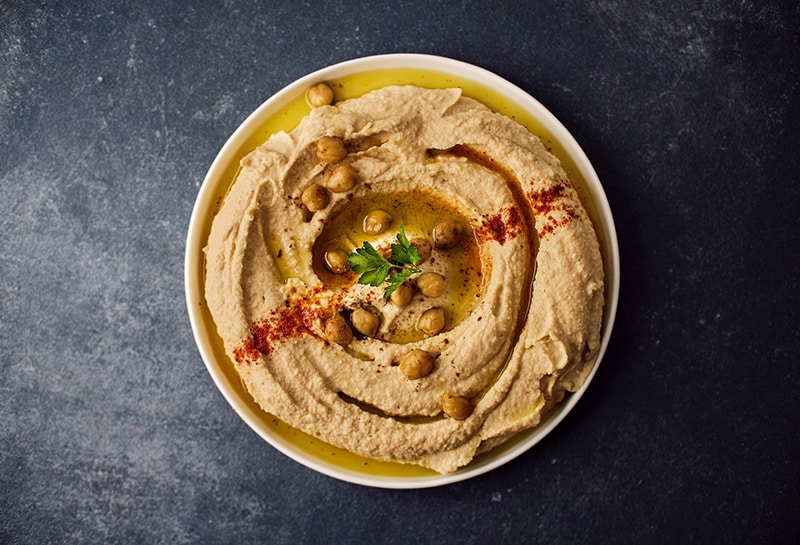

Summary
We hope you have enjoyed this in-depth look into the safety of hummus for cats. If your cat licks some hummus by accident and it contains garlic, please contact your vet for advice straight away. If the hummus is free of garlic and other harmful ingredients, a small lick is unlikely to cause any significant ill effects. However, that’s not a reason to offer them any hummus that is free of garlic, as cats are obligate carnivores and need an animal protein-based diet in order to thrive. There are many more species-appropriate and safe treats to keep your cat happy and healthy, which means more hummus for you.
